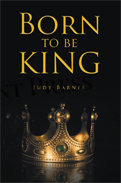
 |
With no room to be had in Bethlehem, one kindly innkeeper manages to find a spot in his stable for Mary and Joseph. Here, Mary births her baby, Jesus. A bright star appears and guides shepherds and kings to meet the new baby, the mostly undisclosed Son of God. As Jesus grows, so does the danger. His family flees to Egypt to avoid an assassination attempt by King Herod. When Herod dies, the family moves back to their home in Nazareth. Here, Jesus grows up and learns about the Torah. Some remark on how knowledgeable Jesus is, but others believe he has peculiar ideas. He often sits alone and meditates, hoping to commune with his "Father." As he comes of age, people begin to question him about his beliefs and his "Father." After failing to help his neighbors understand his teachings, he tells his mother that it is time for him to leave home and spread his message to those who are more receptive.
The questions about Jesus' life between birth and when his teaching began being recorded in the Bible have been the subject of many debates and conversations. Several writers have attempted to tackle the issue, including Anne Rice, D. H. Lawrence, and J. M. Coetzee. Nikos Kazantzakis' temptation-prone Jesus in The Last Temptation of Christ brought both praise and scorn. Norman Mailer even wrote a version, The Gospel According to the Son. This version stayed closer to the canonical gospels and history of the period, much like Barnes' version. Barnes embellishes or fills in the blanks a bit regarding the family's time in Egypt and Jesus' developing personality. For example, she uses a couple of episodes involving animals to show Jesus developing kindness and some scantily clad dancers to demonstrate his growing morality. Another fictional addition comes in the form of retribution. In the Bible, Joseph disappears at some point after Jesus' early years, and most assume he passed away. Barnes has some neighbors Jesus scolded while they were watching a cockfight kill Joseph out of fear he might report them. They mistook the meaning of the father Jesus spoke about.
Barnes' writing is clear, concise, and easy to read. Grammatical mistakes are rare and don't detract from the book in any noticeable manner. In addition, Barnes annotates her work with verse numbers to the corresponding biblical texts and instructs readers on how she invented the fictitious incidents. However, some of the book's depictions of a few meaningful episodes in the life of Jesus come across as a bit sparse. Barnes' writing will undoubtedly appeal to a particular group of those who are interested in this unknown time of Jesus' life. The fiction she creates about possible events is very respectful and avoids controversy. Therefore, it is unlikely to stir many readers to a passionate and negative response. Rather, it offers a safe "What if?" narrative for those who wonder about gifting this book to a fellow believer or family member whom they would never wish to offend but instead to please.